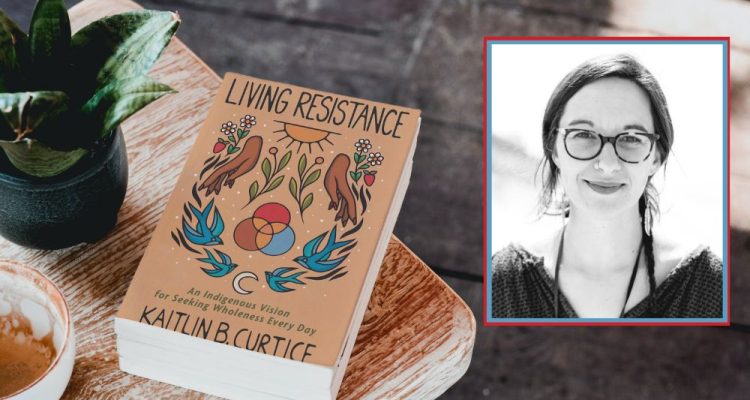Resistance always begins with curiosity, with questions. We often do not ask our questions, not because we are afraid of the answer, but because there might not be a clear answer waiting, or because our communities have taught us that questions are a sign of weakness.
So, what is resistance?
The scientific term resistance refers to a force, such as friction, that operates opposite the direction of motion of a body and tends to prevent or slow down the body’s motion. It is a measure of the degree to which a substance impedes the flow of electric current induced by a voltage.
Resistance is measured in ohms, named after German physicist Georg Ohm, who studied the relationship between voltage, currents, and resistance.
I’d like us to understand resistance as the way we use our everyday lives to exert energy against the dangerous status quo of our time. But resistance cannot only be about what we are against. When we choose to resist something or someone, we are also choosing something else on the other side. Perhaps we are choosing ourselves; perhaps we are choosing an inclusive love or a more just society. We resist ableism or racism because we know there is a better way—this is the way resistance works, and we must both find and create that better way together.
We begin to recognize these currents in our lives, not by ohms, but by the change we notice in ourselves as we choose love and solidarity, as we resist hate. But it must begin with us, in our Personal Realm of resistance. It must begin with our questions.
The fear is in that in-between space of not knowing, the emptiness where we have to wait for an uncomfortably long time to come to any sort of conclusion about who we are or what sort of world we live in. Often, it’s not at all about the answers but about our willingness to step outside of what we know and ask the question in the first place.
This first realm we find ourselves in is an important one— foundational even. That doesn’t mean we always live in the Personal Realm, but this time of going inward, of showing love for ourselves, saying as Lizzo sings, “I’m my own soulmate,” takes a lot of courage and a lot of time, and our questions are always a part of that resistance work.
In the past, I had questions like, Why am I so scared all the time? Is God really this patriarchal guy with a gavel and a list of my sins, waiting in heaven to damn me to hell? What lies have I believed about my body? (I am still asking these questions! That is the journey.)
Curiosity takes root in us as children; I truly believe that. But as we get older, we are taught to trade curiosity for security, and often that security is baked into the status quo of society, of capitalism, which in reality is anything but secure for many of us. Instead of engaging with Mother Earth and the creatures around us, we are taught to commodify the land. We are taught to trust our religious leaders, parents, and teachers more than our own sacred instincts. As a result, we stop listening to our gut, to our hearts, to our own knowing. As Sadhguru writes in his book Karma, “We have frittered away our freedom, bartered and sold it to external authorities, whether parental, religious, cultural, or political. Instead of exercising the freedom of consciousness, of choice, we have bought into the voices that have told us that to be human is to be limited, even sinful.” I learned in sixth grade how to balance a checkbook, but I was never truly taught how to speak with our nonhuman relatives in a sustainable and relational way.
So as adults, many of us on the path of healing are realizing that we must reclaim our curiosity toward ourselves and the land around us; we must start asking questions we didn’t ask before. As we do so, things begin shifting, and, naturally, resistance follows. For many of us, this is also where we begin the journey of deconstruction. This questioning and deconstruction journey can be difficult and messy, but it is a start, and it is holy work, even if in the end we no longer believe what we believed before.
I have experienced different seasons, different layers of deconstruction throughout my life. In college, I took a world literature class that burst the small evangelical bubble I’d experienced growing up and helped me (painfully) realize that the holy texts I took literally are not holy to everyone but are complex works of literature to read, examine, and critique when possible. My Jewish friends have taught me that their sacred texts also matter to them because they can fight with the texts, ask questions, and go on a journey with themselves and the Sacred. But because I did not grow up knowing much about critique or critical thinking, I was scared of opening up my worldview in some ways. But once I did, I found it liberating.
Later, I began a major in social work that forced me into powerful, nuanced conversations about culture, trauma, belief, sexual orientation, poverty, and so much more. The questions that had been buried deep inside me began to rise to the surface and ended up becoming the beautiful beginnings of my deconstruction journey, the chance to ask questions and along the way to critique my childhood faith and my experiences in America, and to ask what my story means to me.
Content taken from Living Resistance by Kaitlin B. Curtice, © 2023. Used by permission of Brazos Press.

